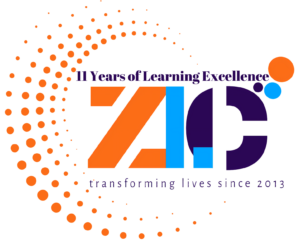The resumes have piled up and innumerable candidates came and went through the revolving doors…… and yet the ideal candidate, the perfect fit was not found. Some candidates who appeared promising on pen and paper were not as impressive in the flesh. Over 30 interviews in one week but the mythic ‘ideal fit’ was still missing. So Ramesh the talent recruitment manager was flabbergasted.
Interviews are the pivotal stage where the shortlisted candidates are all evaluated on the information provided on the resume and cover letter. The interview tests the communication skills of the candidates and addresses any gaps found in the resume. Interviews are of 2 types – phone, face-to-face, and group interviews.
- Telephonic Interviews often serve as the primary filtering process and narrow down the field of applicants who will be invited for the walk-in interviews. This is the stage where the validity of the candidates is determined – through evaluation of basic communication skills, asking about frequent job changes, making the candidate explain their previous work experience and key points of their CV, etc.
- Direct Interview – At this stage, the hiring managers evaluate the knowledge and core competency/skills of the candidate. Competency-based questions are always specific and precise. The candidates may be asked to demonstrate how they handled a particular situation like coming across a challenge or convincing somebody – preferably a client in the past at the workplace through presentation skills.
- Some companies may hold group interviews to determine how a candidate can perform in team settings or test interpersonal skills.
Interviews are a tool to get to know the candidate better and have a birds-eye view of their potential. Here’s how hiring managers can ensure that they get the candidate they are looking for:
Don’t Compromise On Talent
Work experience, communication skills are all fine and dandy but never compromise on talent. Many companies often hesitate to hire promising freshers and opt for people with a proven track record – as they don’t want to incur extra costs of training such employees. But always overlooking the promising candidate who has the potential, the enthusiasm but not necessarily the work experience is not advisable. Maybe they have an amazing knack for innovation. They might not have a wide list of relevant internships but they have might have won countless science Olympiads or came up with some nifty apps! In job roles that require innovation and creativity –especially related to IT, advertising, etc., don’t ignore the promising candidate who doesn’t have a proven track record but stars in their eyes!
Look For the Cultural Fit
An amazing CV does not necessarily make an amazing employee. How well do they understand your client base? If your company has key employees staying back at the office at late night shifts will they be okay with such an arrangement? Hiring someone who turns out to be a poor fit for the organizational culture often leads to a high attrition rate as well.
Give them a relevant task
A resume might claim that someone is a ‘tech wizard’ or a ‘wordsmith’ but employers need proof that a candidate can walk the walk, not just talk the talk. Ask the candidate to develop an app within a week’s time or come up with an engaging presentation or marketing copy within a time schedule.
Ask for References
Just as we look at reviews before buying a product or watching a movie, employers can rely on reference letters and ask for employer reviews. The past performance will be indicative of the future as well.

